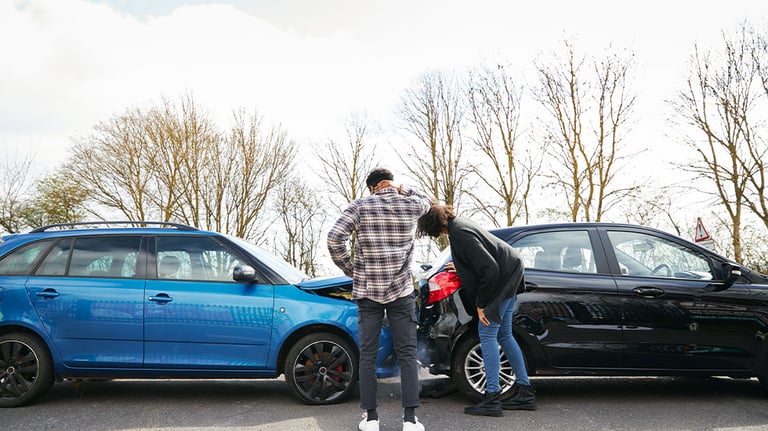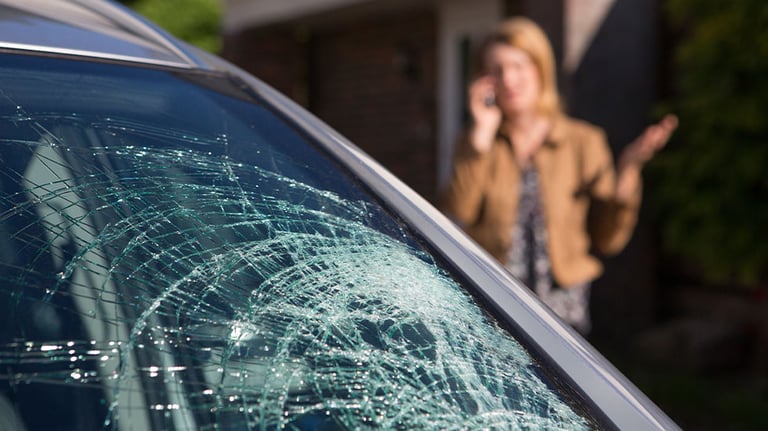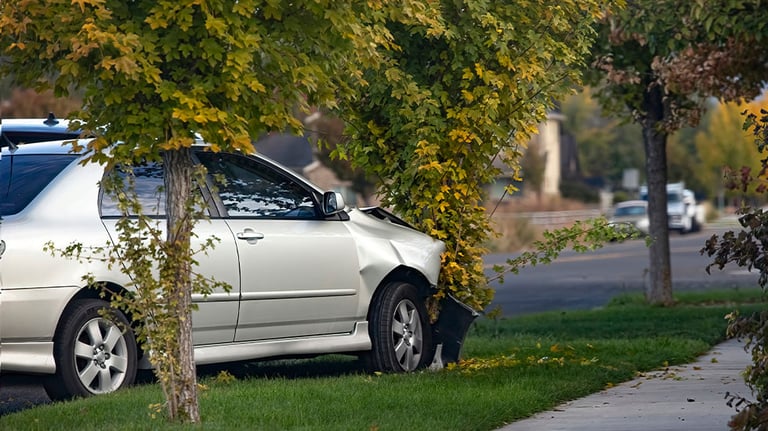
Car insurance may feel complicated because there are several different types of coverage you can have. However, it’s typically more straightforward than you think, especially if you finance or lease your vehicle.
Two types of coverage you may hear about are comprehensive and collision insurance. Read on to learn more.

Comprehensive vs collision insurance
Collision coverage
- Deductible: Yes
- Coverage Limit: Actual cash value.
- Required or Optional: Required if leasing or financing; otherwise, optional.
- What Is Covered: Damage from theft, falling objects, fire, natural disasters, animal damage.
- What is not covered: Damage to another person’s vehicle, medical bills.

What is comprehensive insurance?
Comprehensive insurance coverage that protects against damage to your vehicle caused by non-collision events that are outside of your control, such as:
- Theft
- Vandalism
- Glass and windshield damage
- Fire
- Accidents with animals
- Weather or other acts of nature
Damage to your or another person’s car from a collision or medical expenses for you or a passenger are not covered.
This is not a separate type of insurance, but instead specific coverage on an existing policy. You may be required to carry comprehensive coverage if you finance or lease a vehicle. You can typically add comprehensive coverage to auto, motorcycle, RV, and boat insurance.
Comprehensive coverage has a deductible, which is how much you must pay before your coverage helps pay for your claim. These typically come in set increments, such as $500, $1,000, or $1,500. It also has a limit, which is the maximum amount your policy will pay toward a covered claim. This is usually the actual cash value of your vehicle.

What is collision insurance?
Collision insurance is coverage that helps to repair or replace your vehicle if it’s damaged in:
- A collision with another vehicle
- A collision with an object (like a fence or tree)
- A single-car accident, such as if your vehicle rolls or falls over
- On the other hand, collision insurance does not cover damage to your vehicle not related to driving, damage to another person’s vehicle, or medical bills.
If you’re financing your vehicle, collision coverage is typically required by your lender. Or, if your car is paid off, it’s an optional coverage you can add onto your insurance policy.
Collision coverage has both a deductible (you may be able to choose your deductible amount, typically $0, $500, or $1,000) and a limit.

Do i need both comprehensive and collision insurance?
If you are financing or leasing your vehicle, it’s likely that you’ll be required to carry both comprehensive and collision insurance. Otherwise, consider your vehicle’s cash value, how much it would cost to repair or replace your vehicle, and your deductible.
- If your vehicle’s cash value is relatively low and you have a higher deductible, it may not be worthwhile to carry these coverages.
- If your vehicle has a higher cash value and/or you can’t afford the cost to repair or replace it out-of-pocket, comprehensive and collision coverage may give you peace of mind.
It’s best to talk with an insurance agent to ensure you’re choosing the right coverage for you

